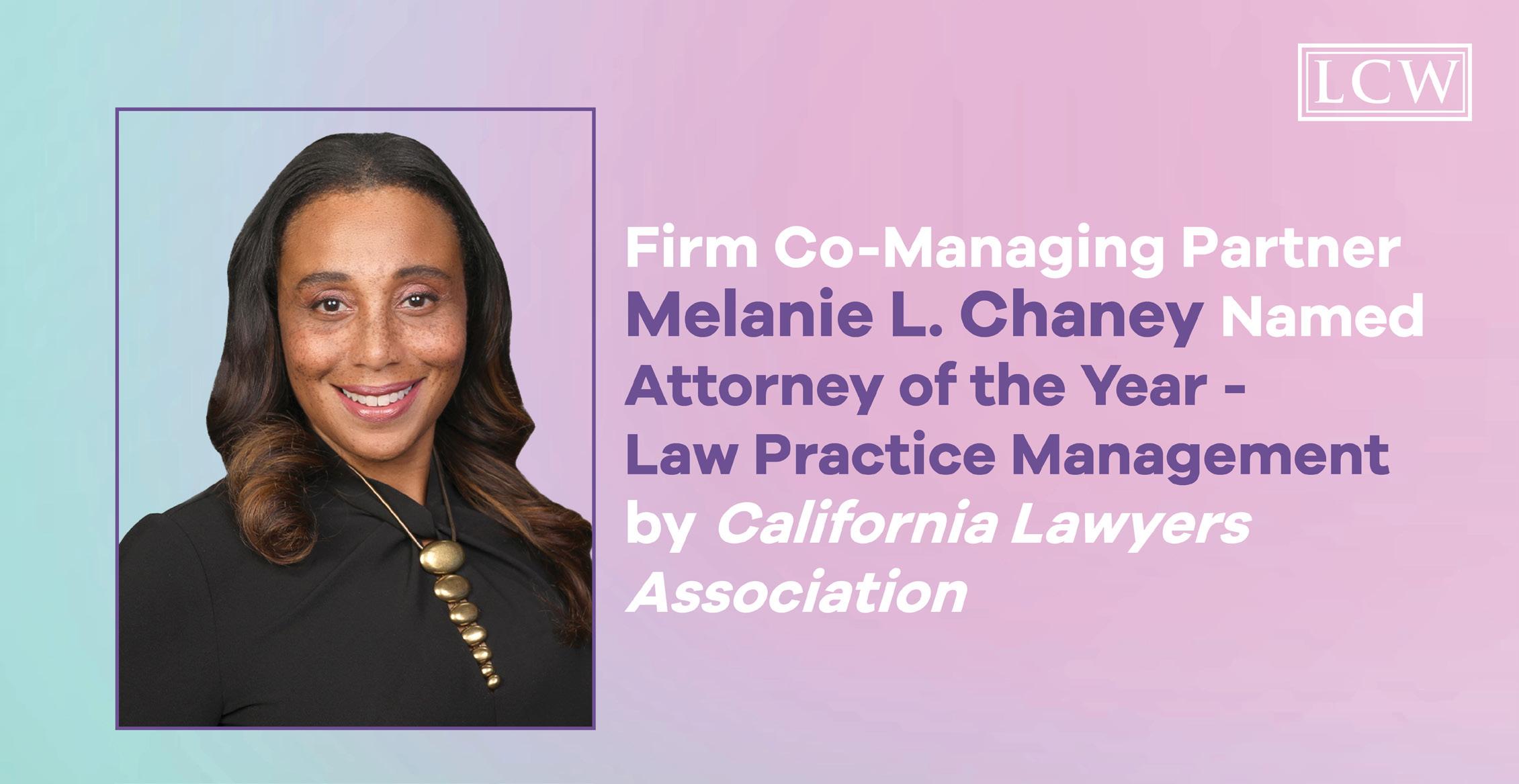






A police officer accused his former supervisor of having an extramarital affair with the police officer’s then-wife, when the officer and his wife were both employed by the same police department. The officer also alleged that he was passed over for a promotion because of sexual favoritism to female employees. Rumors circulated about the affair and the officer took a leave of absence. When the officer returned to work, he was transferred to a different division, away from his wife, and was not allowed to carry his off-duty weapon. Ultimately, the officer retired due to stress and anxiety and what he perceived to be a hostile work environment. The officer then sued the department.
The Superior Court gave the officer three attempts to state his case, but Jacob and Cohen proved that the officer could not plead facts sufficient to support either: that the alleged harassment was severe or pervasive; or his sexual favoritism theory of workplace harassment. They also convinced the Court that the officer could not show any protected activity to support his retaliation claim. They also won the dismissal of the officer’s claims for failure to prevent harassment, and intentional infliction of emotional distress. The court dismissed the action against the city with prejudice.
A police sergeant’s patrol vehicle was damaged during his shift. The sergeant denied knowing how the damage occurred. Following the department’s internal investigation, the police chief issued a notice of intent to terminate the sergeant for: violating the department’s ethics and conduct policies; causing the damage to the vehicle; failing to report the damage to his supervisor; attempting to conceal the damage; and dishonesty concerning the damage. The sergeant appealed the discipline to the civil service board.
The civil service board upheld the termination despite the sergeant’s arguments that: he did not know how the patrol car was damaged; he only noticed the damage when he was washing the car; the damage was insufficient to prove that he backed the patrol car into a pole; and because he did not know the cause of the damage to the patrol car, he was not dishonest in denying he caused the damage.
Bolanos and Bui presented evidence establishing the sergeant’s dishonesty and non-compliance with the department’s policies. The evidence showed that the sergeant washed the car in the dark; moved another patrol vehicle so he could park his damaged patrol vehicle in an area away from the security cameras; and looked at the damaged areas of the patrol car several times during his shift. Following its review of the record, the civil service board upheld the city manager’s determination that the officer’s misconduct established just and sufficient cause for termination.
Sergio Ramirez was a police officer with the City of Indio Police Department. Ramirez was charged with rape and sexual assault of his 18-year-old niece. The City placed Ramirez on administrative leave and initiated an internal affairs investigation. A jury later acquitted Ramirez of all criminal charges.
The City’s IA investigation resulted in two conflicting reports. The sergeant who conducted the initial investigation concluded that Ramirez had violated multiple Department policies, including misrepresenting material facts, dishonest or disgraceful off-duty conduct affecting the officer’s relationship with the Department, and conduct reflecting unfavorably on the Department. After further investigation, a different sergeant concluded that the policy violations were “not sustained.”
The Chief issued a Notice of Intent to Terminate Ramirez and conducted a pre-disciplinary Skelly conference in September. After considering all facts, the Chief issued a Notice of Termination. The Notice explained that the Department would terminate Ramirez’s employment based on his admission that he drove under the influence of alcohol alone, but the preponderance of the evidence also established that he was dishonest and showed poor judgment that embarrassed the City and the Department. Ramirez appealed the Chief’s decision through the administrative appeal process outlined in the MOU between the City and the Indio POA.
The mutually agreed upon arbitrator conducted a three-day virtual evidentiary hearing. After the hearing, the arbitrator recommended Ramirez's reinstatement with full back pay and benefits. The arbitrator opined that the City failed to carry its burden to establish that: Ramirez drove under the influence of alcohol; reset his Department-issued cell phone with an intent to destroy evidence; lied about his actions; and made inconsistent statements during his IA interviews and at trial with an intent to lie or misrepresent his actions.
After reviewing the arbitrator’s advisory findings and recommendations, and all of the materials from the investigation and trial, the City Manager issued a final written decision, rejecting the arbitrator’s advisory findings and recommendation and affirming Ramirez’s termination. The City Manager cited Ramirez's poor judgment, dishonesty, and conduct unbecoming of an officer and bringing discredit and embarrassment to the City.
Ramirez petitioned the Superior Court for a writ of mandate, arguing that the City Manager should have deferred to the arbitrator's findings on the weight and credibility of the evidence. The Superior Court denied the petition, affirming the City Manager's decision. Ramirez appealed.
The California Court of Appeal affirmed the lower court. The Court held that the express language of the MOU gave the City Manager final authority to make disciplinary decisions, including the power to reject the arbitrator's advisory findings. The Court rejected both Ramirez’s argument that the City Manager was required to defer to the arbitrator’s determinations of the relevancy, weight and credibility of testimony and evidence during the hearing, and that the City Manager had to afford the advisory findings “great weight.”
The Court also found that the City Manager had conducted a thorough review of the arbitrator's recommendations and the evidence before making the final decision, as was required by the MOU, and even went further by reviewing additional relevant documents and the transcripts and providing a detailed analysis supporting his conclusion.
Finally, the Court concluded that the administrative appeal process provided Ramirez with due process, as it included notice, an opportunity to respond, and a meaningful hearing.
Ramirez v. City of Indio, 105 Cal.App.5th 939 (2024).
Maria Miller worked as a correctional officer with the California Department of Corrections and Rehabilitation (CDCR). In 2016, she was injured at work. Miller did not return to work while she received treatment. She was placed on an unpaid leave of absence in July 2018.
In August 2018, Miller’s physician determined that she had reached maximum medical improvement and she would be subject to permanent restrictions that precluded her from lifting, pushing, or pulling items over 30 pounds; repetitive bending, twisting, or stooping; and kneeling or squatting. The essential functions of a CDCR correctional officer required many of these physical abilities.
In December 2018, Miller agreed to accept a medical demotion and placement in an alternative position as an accommodation that would permit her to return to work. CDCR identified three potential positions and offered to medically demote her to the position that had the highest salary. Miller failed to show up for two “meet and greet” orientations that CDCR scheduled for her in 2019 pertaining to this new position.
Instead, Miller told CDCR that: she had begun mental health treatment; she had filed a new worker’s compensation claim for stress; and her psychologist prohibited her from being “anywhere near CDCR” while receiving treatment. As of 2019, there was no accommodation available that would have permitted Miller to return to work. She remained employed with CDCR on an unpaid leave of absence while undergoing mental health treatment.
In 2020, Miller sued, alleging that CDCR violated the California Fair Employment and Housing Act (FEHA) by: disability discrimination, failure to accommodate, failure to engage in the interactive process, failure to prevent discrimination, and retaliation. Miller’s original complaint also included a claim for violation of Government Code section 21153, which requires
a public employer to apply for a CalPERS disability retirement on an employee’s behalf in certain situations, but Miller voluntarily dismissed that claim. CDCR filed a motion for summary judgment on the remaining claims. The trial court granted CDCR’s motion. Miller appealed.
The California Court of Appeal upheld the grant of summary judgment. As to the disability discrimination claim, the Court found that the “stay away” order Miller’s psychologist gave established that Miller could no longer perform the essential duties of her position at CDCR with or without accommodation.
Miller did not propose any reasonable accommodation during the interactive process, but in court she claimed that the CDCR could have accommodated her by offering to file an application for CalPERS disability retirement on her behalf. The Court of Appeal found that a reasonable accommodation is limited to efforts that facilitate an employee’s return to work. The purpose of a disability retirement is to separate an employee from work. Although the CalPERS retirement law at Government Code section 21153 requires an employer to file for a disability retirement on an employee’s behalf in some circumstances, Miller had voluntarily dismissed her section 21153 claim. The Court said that even if CDCR wrongfully refused to apply for disability benefits on Miller’s behalf, that fact would not have created a material dispute of fact on CDCR’s motion.
Finally, the Court found that Miller’s claim for retaliation failed because there was no evidence that Miller undertook any protected activity, which is an essential element of a retaliation claim. Miller’s complaint alleged that her sole protected activity was becoming disabled. The Court found that neither the involuntary act of becoming disabled, nor the fact that Miller notified the CDCR that she had a disability, was protected activity.
Miller v. Department of Corrections and Rehabilitation, 105 Cal.App.5th 261 (2024).
Note:
Employers who are assessing how to respond to a disability discrimination claim will find many practice tips in this case.
The California Department of Corrections and Rehabilitation (CDCR) and SEIU Local 1000 were parties to a Collective Bargaining Agreement (CBA).
In April 2023, SEIU gave hats to employees working in the Correctional Supervising Cooks (CSC) classification that had the following slogans on the back: “SEIU Local 1000” and “Respect Us, Protect Us, Pay Us.” In late August 2023, CDCR allegedly disallowed the hats and threatened employees with writeups for noncompliance. SEIU raised the issue with management, but CDCR allegedly reiterated its prohibition and issued a counseling memorandum to a CSC who wore the hat.
SEIU filed an unfair practice charge, and the Public Employment Relations Board (PERB) Office of General Counsel issued a complaint alleging interference and retaliation. CDCR answered the complaint, denying the allegations and asserting affirmative defenses, including deferral to arbitration. The Administrative Law Judge (ALJ) granted CDCR’s deferral motion and dismissed SEIU’s charge. SEIU appealed to PERB.
PERB upheld the ALJ’s grant of dismissal. PERB then provided a comprehensive overview of its established pre-arbitration and post-arbitration deferral doctrine, and how that doctrine has evolved over time.
A party that seeks pre-arbitration deferral has the burden to establish that: 1) the dispute arises within a stable collective bargaining relationship; 2) the party is willing to waive procedural defenses and to arbitrate the merits of the dispute; 3) the CBA and its meaning lie at the center of the dispute; and 4) no exception to deferral applies.
In order to establish the third element, the party seeking deferral must establish that the alleged unfair practice was arguably prohibited by the parties’ agreement, and that resolution of the contractual issue must necessarily resolve the merits of the unfair practice allegation.
If PERB considers deferral after the parties have completed arbitration and received the arbitrator’s final decision, PERB will typically defer to a final arbitration decision and dismiss the related unfair practice claim(s), if: 1) the unfair practice issues were presented to and considered by the arbitrator; 2) the arbitral proceeding was fair and regular; 3) the party asserting deferral agrees to be bound by the arbitrator’s decision; and 4) the arbitration was not clearly repugnant to the purposes and policies of the statute.
In this case, multiple, interrelated claims were presented, including the claims for alleged interference with employee and union rights. PERB differentiates between independent claims, which can stand alone, and derivative claims, which hinge on the outcomes of others. PERB explained that when a claim is derivative, it doesn’t need a separate deferral justification if the independent claim is deferable.
Here, PERB found that the claims for interference with both employee and union rights shared the same facts, standards, and potential remedies, allowing both claims to be resolved together in arbitration without risking an incomplete resolution. PERB explained that SEIU’s claim for interference with the union’s own rights, was derivative of the claim for interference with employee rights. PERB found that deferral to arbitration applied to both claims, even though SEIU argued that the claims required separate handling. PERB thus deferred both claims to arbitration and dismissed SEIU’s complaint.
State of California (Department of Corrections and Rehabilitation) (2024) PERB Dec. No 2926-S.
Blake Wentworth was an assistant professor at the University of California, Berkeley. The essential functions of his job included teaching, research, and service to the department and profession.
Wentworth was struggling with his mental health. He told one of his colleagues, “his wife was unhappy.” Wentworth told the chair of the department, Jefferey Hadler, that he had been diagnosed with bipolar II disorder. Wentworth later was hospitalized after attempting to commit suicide.
After Wentworth returned to work, Hadler asked to meet to discuss how Wentworth’s disorder affected his ability to do his job. Hadler noted that Wentworth missed a week of class and failed to write a fellowship nomination letter. Hadler said he wanted to explore whether there were any accommodations that would allow Wentworth to fulfill the essential functions of his job. Hadler suggested that Wentworth review the University’s processes for faculty accommodations.
Wentworth agreed to meet but initially resisted any suggestion that he needed accommodations. Wentworth insisted that his problems were only because his wife had left him. At this meeting, Wentworth asked Hadler about the possibility of teaching through the end of the semester and then taking research leave. However, the University did not offer research leave.
During the February 2015 meeting, Hadler offered Wentworth a medical leave, which involved: 1) relieving him of all duties; 2) stopping his tenure clock, which would require him to continue to teach and perform other duties, but push back his deadlines for completing a body of research for consideration for tenure purposes; and 3) other accommodations.
In early April 2015, students complained about Wentworth’s behavior. Some of the complaints alleged Wentworth held their hands, talked about his personal life, and said he was attracted to them.
Later in April 2015, Wentworth’s doctors wrote notes: 1) saying that he had a partial disability that prevented him from satisfying the research component of his duties; and 2) requesting to stop his tenure clock for two semesters. In July 2015, the University approved his request for accommodation.
In October 2015, the university investigated Wentworth’s conduct. The investigation concluded that he had violated policies on sexual harassment and failed to meet certain academic responsibilities. As a result, the University terminated Wentworth in May 2017.
From February to April 2016, some of the students who alleged Wentworth had sexually harassed them discussed their experiences with the media. Soon articles were published about Wentworth. The article in the San Francisco Chronicle included a description of a letter department professors had written to the department head regarding Wentworth.
In a faculty-student department meeting in April 2016, the head of the department described the interactive process conversations he had with Wentworth, among other confidential information regarding the complaints against Wentworth.
In September 2016, Wentworth filed an action against the university, alleging several causes of action under the Fair Employment and Housing Act (FEHA) (including disability harassment, disability discrimination, retaliation, failure to engage in the interactive process, failure to provide reasonable accommodation, and failure to prevent discrimination, harassment, and retaliation) and the Information Practices Act (IPA). Wentworth claimed that the University failed to engage in the interactive process and provide reasonable accommodations for his bipolar disorder, and that it invaded his privacy by leaking information about student complaints and his disability accommodations to the media.
The superior court granted summary adjudication in favor of the University on the claims of failure to engage in the interactive process, failure to provide reasonable accommodations, and invasion of privacy.
The California Court of Appeal affirmed the trial court’s rulings on the interactive process and reasonable accommodation claims because the evidence showed that the university engaged in the interactive process in good faith and offered a reasonable accommodation, which the professor did not assert was inadequate.
The Court reversed the summary adjudication of the invasion of privacy causes of action, finding that there were triable issues of fact regarding whether the University violated the IPA. The IPA prohibits state agencies, like the University from disclosing information that identified or described employees like Wenworth, including information about medical or employment history. The letter about student complaints and the discussion at the April 2016 student-faculty meeting contained information regarding Wentworth’s medical and employment history. The University did not dispute that the leaks of information about Wentworth could be attributed to it. The Court held that a reasonable jury could conclude from this evidence that someone in the department leaked the letter to the media to bring attention to Wentworth. The Court of Appeal reversed the grant of summary adjudication on the IPA claim and remanded the matter to the trial court.
Wentworth v. Regents of University of California, 105 Cal.App.5th 580 (2024).

We're thrilled to announce that registration is open for the Annual LCW Conference taking place January 30-31, 2025, in San Diego!
The LCW Conference is California's premier public sector employment and labor relations educational event. Our speakers are California labor relations and employment law attorneys who have dedicated their careers to representing and supporting California's cities, counties, special districts, public safety agencies and public educational institutions.
When: January 30-31, 2025
Where: Hilton San Diego Bayfront One Park Boulevard San Diego, CA 92101
Thomas Mooney was employed as chief operating officer for Vivida Dermatology, which was Dr. Douglas Fife’s dermatology practice. Mooney had a three-year employment agreement. That agreement contained a confidentiality provision and allowed Vivida to immediately terminate Mooney’s employment for cause.
Mooney alleged improper billing practices at Vivida. Vivida terminated Mooney after he: 1) talked with Dr. Fife about the billing practices; and 2) told a doctor from another dermatology practice to talk to Dr. Fife about that doctor’s concerns about whether Vivida was also interested in acquiring a third doctor’s practice.
Mooney then sued Vivida and included a retaliation claim under the U.S. False Claims Act (FCA), among other claims. The FCA protects whistleblowers who try to stop fraud against the government. The U.S. District Court granted Vivida’s motion for summary judgment on Mooney’s FCA claims. Mooney appealed.
The U.S. Court of Appeals for the Ninth Circuit found for Mooney. It held that the district court applied the wrong legal standards on Mooney’s FCA retaliation claim.
The Ninth Circuit held that a FCA retaliation claim requires proof of three elements: 1) protected conduct; 2) notice; and 3) causation. The Court clarified that in analyzing a FCA retaliation claim, courts must use the McDonnell Douglas burden-shifting framework. Under that framework, once an employee establishes a prima facie case of retaliation, the burden shifts to the employer to produce a legitimate, non-retaliatory reason for the employee’s termination. Then, if the employer produces such a reason, the burden shifts to the employee to show that the employer’s explanation was pretextual.
The Ninth Circuit applied the McDonnell Douglas framework. The Court concluded that Mooney’s protected conduct -- telling Dr. Fife of his good faith belief that Vivida was committing Medicare and Medicaid billing violations -- satisfied the first element of a retaliation claim. Mooney submitted proof that he subjectively and objectively believed that Vivida was possibly committing fraud against the government by “upcoding” procedures and “unbundling” component parts of procedures, each of which increased the value of Vivida’s Medicare and Medicaid reimbursements.
The Ninth Circuit concluded that Mooney met the notice requirement of a prima facie case, which requires a showing that the employer must have known that Mooney was trying to stop one or more violations of fraud against the government. Mooney testified that he notified Dr. Fife several times about his concerns about Vivida’s billing practices.
Vivida did not challenge causation, the third element of a prima facie case, and so the burden shifted to Vivida to produce a legitimate, non-retaliatory reason for Mooney’s termination. Vivida claimed that Vivida terminated Mooney’s employment based on legitimate, non-retaliatory reason because Mooney materially breached his Employment Agreement by disclosing confidential information concerning Vivida’s expansion plans to another dermatologist. But Vivida also gave “soft” alternative reasons for the termination, including that Mooney was abrupt and disrespectful of other staff. Mooney disputed that he disclosed any expansion plans and the alternative reasons. The Court held that Mooney established genuine issues of material fact as to whether Vivida’s reasons for his termination were pretextual.
The Court of Appeal reversed the district court’s grant of summary judgment as to Mooney’s claim for FCA retaliation and remanded that claim for trial.
Mooney v. Fife, 2024 U.S.App. LEXIS 24622 (9/30/2024).
Whether you are looking to impress your colleagues or just want to learn more about the law, LCW has your back! Use and share these fun legal facts about various topics in labor and employment law.
• If after an employer makes a conditional offer of employment, and intends to deny an applicant a position of employment solely in or in part because of the applicant’s conviction history, the employer must first make an individualized assessment of whether the applicant’s conviction history has a direct and adverse relationship with the specific duties of the job that justifying denying the applicant the position.
• In making this assessment, the employer must consider:
• The nature and gravity of the offense or conduct,
• The time that has passed since the offense or conduct and the completion of the sentence, and
• The nature of the job held or sought.
• If the employer makes a preliminary decision that the applicant’s conviction history disqualifies the applicant, the employer must notify the applicant of the preliminary decision in writing, along with a copy of the conviction history report, if any. The employer must give the applicant five business days to respond, and consider any response. If the employer makes a final decision to reject the applicant based on the conviction history, the employer must give the applicant a final written notice, and provide information on any available internal appeal procedures, as well as the applicant’s option to file a complaint with the California Civil Rights Department. (Government Code section 12952.)

Members of Liebert Cassidy Whitmore’s employment relations consortiums may speak directly to an LCW attorney free of charge regarding questions that are not related to ongoing legal matters that LCW is handling for the agency, or that do not require in-depth research, document review, or written opinions. Consortium call questions run the gamut of topics, from leaves of absence to employment applications, disciplinary concerns and more. This feature describes an interesting consortium call and how the question was answered. We will protect the confidentiality of client communications with LCW attorneys by changing or omitting details.
What can an employer do if the employer doubts the validity of a doctor’s report or evaluation for an employee who claims they have a disability?
The employer can require its own fitness for duty examination, provided that the employer’s exam is job related and consistent with business necessity. The FEHA regulations provide that when the existence of a disability and/or the need for reasonable accommodation is not obvious, an employer may require an employee to obtain and provide the following documentation from a health care provider:
1. The name and credentials of the health care provider.
2. That the employee or applicant has a physical or mental condition that limits a major life activity or a medical condition, and a description why the employee or applicant needs a reasonable accommodation to have an equal opportunity.
3. The employer shall not ask for unrelated documentation, including in most circumstances, an applicant’s or employee’s complete medical records, because those records may contain information unrelated to the need for accommodation.
4. If the applicant or employee provides insufficient documentation, the employer shall explain why the documentation is insufficient and allow the applicant or employee to provide the supplemental information in a timely manner. Thereafter, if there is still insufficient documentation, the employer may require an applicant or employee to go to a doctor of the employer’s choice.
5. Documentation is insufficient if: a) it does not specify the existence of a FEHA disability and explain the need for a reasonable accommodation; or b) the doctor does not have the expertise to confirm the applicant’s or employee’s disability or need for reasonable accommodation or other factors that indicate that the information provided is fraudulent.
(2 Cal.Code Regs section 11069(d)(5).)

By: Heather DeBlanc & Madison Tanner
Engaging with an Artificial Intelligence (AI) service provider entails navigating a complex legal landscape. To develop a successful partnership, organizations must carefully evaluate legal considerations prior to signing a contract. This article covers the essential best practices for contracting with AI service providers.
AI companies and the services they provide are relatively new to the business world. Thus, it is imperative to conduct comprehensive due diligence on the AI service provider. This may include reviewing the company’s status on the California Secretary of State website to ensure good standing, reviewing publicly available reviews, asking for references from other customers, determining how long they have been in business and how long the product has been live, and making inquiries into the company’s financial health. Getting a sense of the overall health of the company can be key to avoiding a relationship with an unstable or unreliable entity.
It is key to understand what type of data will need to be shared with the company in order for it to provide the offered services. Once it is determined what data will be shared, an assessment must be made as to what legal restrictions or protections exist for that data. For example, does the data include employee information, pupil records, or nonpublic business information? If any confidential information will be shared, the contract must clearly state each party’s obligations regarding compliance with all applicable laws. It should also clearly delineate legal responsibility for a breach of any confidential information.
The contract should also set forth who holds ownership of the data (both input and output). Typically, ownership of data should remain with the entity receiving the AI services. However, AI companies may request to retain aggregated anonymized data or data in a form that it can utilize for its own benefit. These provisions should be carefully scrutinized to avoid the AI service provider utilizing the data in a manner that violates any applicable privacy laws or organization policies.
A contract with an AI provider should require the provider to be liable in the event of a data breach. It should also specify the provider’s specific obligations under data breach laws and notification requirements so it is clear who must take immediate steps in the event of a breach of confidential information. A contract should clearly state the repercussions of any breach of the data obligations or other breach of the contract. It is also prudent to require the company to indemnify for any third party claims that may arise from their AI services. These provisions are critical to reducing potential fiscal impacts in the event something goes wrong with the services.
A strong termination provision can provide your organization with significant leverage throughout the term of the services. If drafted correctly, it can allow termination if the AI provider’s services are falling short of expectations, not meeting the desired needs, or if the AI provider is not delivering the services in accordance with the contract. Termination provisions can also protect your organization in the event the AI company abruptly cancels by requiring notice and reimbursement requirements.
Another element to include in a termination provision is how the data will be handled at the conclusion of the relationship. It should articulate any return or destruction of data and the timelines for the action.
Contracting with an AI service provider requires careful consideration of a number of variables. By conducting due diligence, understanding data protection and ownership rights, establishing liability obligations, and anticipating termination, organizations can set themselves up for a successful relationship. This list is not exhaustive however and there are other important factors that should be considered, especially depending on the type of AI services being provided. Engaging legal counsel to assist with reviewing AI service contracts will mitigate risk and ensure the agreement is tailored to the specific needs of your organization.
View the full blog post here.


